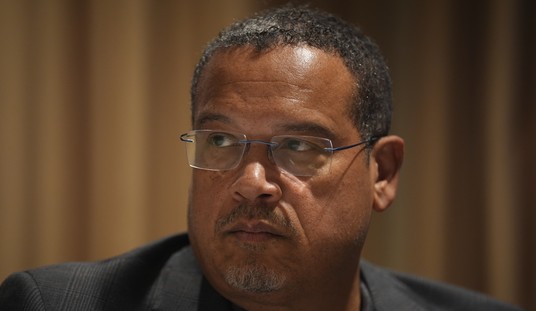We’ve been covering the transgender bathroom issue here pretty much since the beginning, with one question hanging like a vulture over the entire affair: will the Supreme Court ever weigh in to settle this once and for all? When they were first offered the opportunity I asked whether or not they would simply duck the entire thing. After initially offering a temporary stay of a ruling in the Virginia case of Gavin Grimm – the young lady who “identifies” as a boy and wants to use the male facilities at her school – the court has now announced that they will tackle the case in the coming session, likely some time in the spring. (CNN)
The Supreme Court agreed on Friday to take up a case concerning a transgender high school student in Virginia who is seeking to use the boys’ bathroom at school.
The case, which should be heard this term, marks the first time the Supreme Court has considered the controversial issue playing out across the country, most notably in North Carolina, where the Justice Department has filed a civil rights suit against the state’s so-called bathroom law.
A lower court had ruled in favor of the student, Gavin Grimm, but last summer the Supreme Court agreed to temporarily stay that ruling while it considered an appeal from the Gloucester County School Board.
What most of us who have been almost obsessively following these cases would like to see is an answer to the largest, underlying questions regarding SJW definitions of “gender” as opposed to scientific identification of sex and the role of traditional privacy rights. But as I was reading the coverage of this latest chapter in the story from Pete Williams at NBC News I was reminded of an unpleasant fact. The Court has seemed to avoid sweeping answers to controversial social questions in the modern era, preferring more technical rulings on the wonky aspects of the law. That may or may not turn out to be the case here, but let’s just say I’m not getting my hopes up.
The Grimm case presents an ideal opportunity for the court to settle the questions at the root of all these legal proceedings once and for all if they choose to do so. Is the human race divided biologically into two genders – male and female – in a way which can be readily identified in all but the tiniest fraction of cases by a quick examination of the genitals of a child at birth? And failing that, are we to at least accept the well established science of genetics and turn to the individual’s 23rd pair of chromosomes for an answer, assuming one was ever required? Or is “gender” something “fluid” as LBGT activists claim, with everyone being able to decide what gender they feel like at an emotional level? Far more importantly, even if we properly allow people the freedom of expression in their private lives, does that perception cross all legal boundaries to the point where that “decision” can be forced on the rest of us? Can such “feelings” be used as a basis to demand that a boy must be allowed to share the school’s female shower facilities with because he “identifies” as a girl?
Yes, it would be nice to have the Supreme Court draw a line in the sand on these questions, but as I mentioned above, they might not do it at all. The court regularly decides controversial cases on technicalities rather than answering difficult issues such as this one. In the Grimm case, it’s entirely possible that the Supremes will hear the arguments and simply rule on whether or not the Executive branch was within its rights to overrule state and local education policy under the guise of modifying Title IX. If that’s the path they take, the justices could simply either grant the White House the power to implement such changes in definitions and issue orders accordingly or declare that the reinterpretation would have to be approved by Congress. That gets them off the hook in a very sticky situation and dumps the problem back into the laps of the House and Senate.
Right now the court is somewhat evenly divided between members who would seem likely to sustain traditional privacy rights and those who will rule in favor of whatever the liberal, progressive talking point of the day happens to be. (Depending, of course, on how Kennedy decides to rule on any given day.) If the composition of the court remains as it is now, I’d put good money on a technical ruling coming back, likely in favor of the plaintiff. If the ninth seat is filled before the case is heard we might actually get a more comprehensive decision, but that will yet again depend entirely on who winds up filling the seat.









Join the conversation as a VIP Member